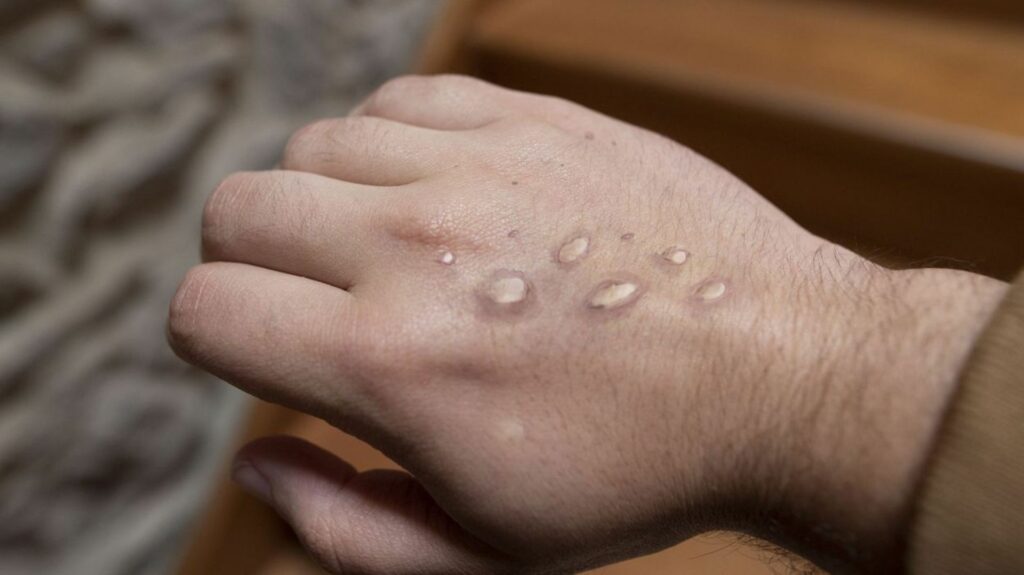Following the news that Belgium aims to vaccinate all people with an increased risk of monkeypox by the end of next week, Flanders has announced it will be stepping up its system of informing people and raising awareness about the virus.
As of 8 August, a total of 546 confirmed cases of monkeypox were reported by the regional administrations in Belgium, of which 187 cases were reported in Brussels (34%) and 55 cases in Wallonia (10%), and the highest number (304 cases or 56%) was detected in in Flanders, which is why the region is taking new measures.
"There is absolutely no reason to panic at this stage, there is no risk of transmission by, for example, partying together. However, it is important to inform people properly," Hilde Crevits, Flemish Health Minister, said in a statement.
While several initiatives have already been set up to provide more information about the monkeypox virus, the region has decided to strengthen the existing communication and awareness-raising actions.
"We notice a great concern about the monkeypox virus, but at the same time, we also notice a great willingness among the target group to protect themselves: many gay men inform themselves, talk about it with each other and want to be vaccinated," the Flemish centre of expertise for sexual health, Sensoa, noted.
Info line and Antwerp Pride
From now on, anyone with questions or looking for general information about monkeypox can call the info line 1700 during weekdays from 9:00 to 19:00. Referrals to family doctors or other useful organisations can be made during this call.
Sensoa, and the Agency for Care and Health will actively raise awareness among the target group, specifically this weekend, when Antwerp Pride will take place, where Sensoa will be answering questions on the spot, and will hand out cards with a QR code that redirects to the website with all the correct information on the virus.
Owners of places where intimate contact is possible were personally contacted by Sensoa to inform them of possible preventive measures they can take to minimise the risk of being infected by the monkeypox virus.
Related News
- Belgium to vaccinate 'target group' against monkeypox by next week
- 'Viruses don't discriminate': Expert outraged by homophobic reactions to monkeypox
- First female monkeypox patient diagnosed in Belgium
Finally, despite the limited results so far, contact tracing will also be continued via the Agency for Care and Health, which will contact infected people and their high-risk contacts, so they can be notified in time to prevent the disease from further spreading.
Crevits stressed that this open communication is "essential" and called for maximum sharing of information with the contact tracing: "The contact tracing stands or falls with the willingness to communicate openly. It is very important that infected persons have confidence in it."
All contact investigators work in a confidential manner, and a high-risk contact is not told who the infected person is. "It is therefore important not to remain silent; open communication reduces the risk of further spread of the virus," Crevits concluded.
The main symptoms of the monkeypox virus are pimples or blisters, which turn into scabs, fever, swollen lymph nodes, fatigue, muscular pain, and headache. These appear after an incubation period of five to 21 days (usually six to 13 days). The monkey pox virus can spread as soon as symptoms appear.
While some cases can be more serious, especially in more vulnerable persons (pregnant women, persons with reduced immunity, the elderly, children), those infected with the virus usually heal spontaneously.

